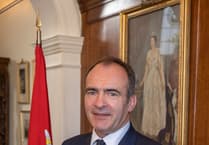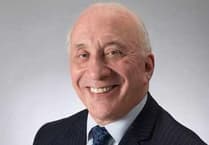A new attempt to ensure future chairmen of the Communications Commission are non-political is to be made.
The chairman of the commission is a Tynwald member - currently Home Affairs Minister Bill Malarkey MHK.
hen the House of Keys debated the Communications Bill, an amendment that would have made it a non-political post was defeated.
But Kate Lord-Brennan told her Legislative Council colleagues that she planned to bring a similar amendment in the upper chamber.
If MLCs approved the change, it would be another example of the unelected chamber ignoring the wishes of elected MHKs - as happened recently on charities legislation. However, in this instance it is likely to be the government, rather than backbenchers, who would disgruntled.
Pointing out that 10 MHKs had been in support of making the chairman a non-political role, Ms Lord-Brennan said that Legislative Council should not let fears of going ’out on a limb’, against what the Keys had agreed, prevent them from approving any such amendment.
She told MLCs: ’What we need to have at the forefront of our minds is actually what we are doing is best for the island, best for the structures that we have around the regulation and the governance of this.’
The Bill, which has already gone through scrutiny in the House of Keys, brings together regulation of telecommunications and broadcasting, previously dealt with separately in the Telecommunications Act 1984 and the Broadcasting Act 1993.
It was granted a second reading by the Legislative Council last week.
Attorney General John Quinn said the Bill provided a legislative basis for the telecommunications and broadcasting industries to keep up with new technology.
The Bill provided a framework for economic regulation which would ’underpin these industries, providing certainty and stability in the regulatory environment’.
He acknowledged the strong views expressed on whether the Communications Commission should have a political chairman
Mr Quinn said the commission had already undertaken to review its structure once the bill had been implemented.
’They respectfully ask that you be patient and allow the various models that are used elsewhere and any potential impact for industry and consumers to be discussed and evaluated,’ said the Attorney General.
The Bill also made clear the commission should exercise its functions independently of any other body and the Council of Ministers must not direct it in relation to its functions or applicants for licences.
He said that 19 other jurisdictions were analysed for their regulatory bodies and of those, only two had a political chair, seven had an independent chairman and 10 were under executive management.
In the, UK Ofcom is chaired by a cross-bench peer, in Ireland, regulation is under executive management, the Channel Islands and Malta have independent chairmen.
He added that the commission was obliged to continue in its current format until a change in primary legislation.
Outlining her plans for an amendment to stop a Tynwald member being a chairman of the commission, Mrs Lord-Brennan said: ’There would be scope within that to recognise that, for a period of time, it might be helpful and beneficial to have the political chair in place.
’This would recognise the short-term need, with the long-term recognition that a political chair should not be something that is required indefinitely.’
She warned the Legislative Council was being ’steered towards a certain direction’ and the commission should wait to see what was decided by parliament.
But Bill Henderson said there needed to be a ’degree of trust’ placed in the commission to make the change itself, and if it did not, then the matter could be raised in Tynwald. It was not necessary to put a ’legislative lasso’ around the commission at this stage.
Any amendments to the Bill would be debated at the clauses stage, due to take place next month.




